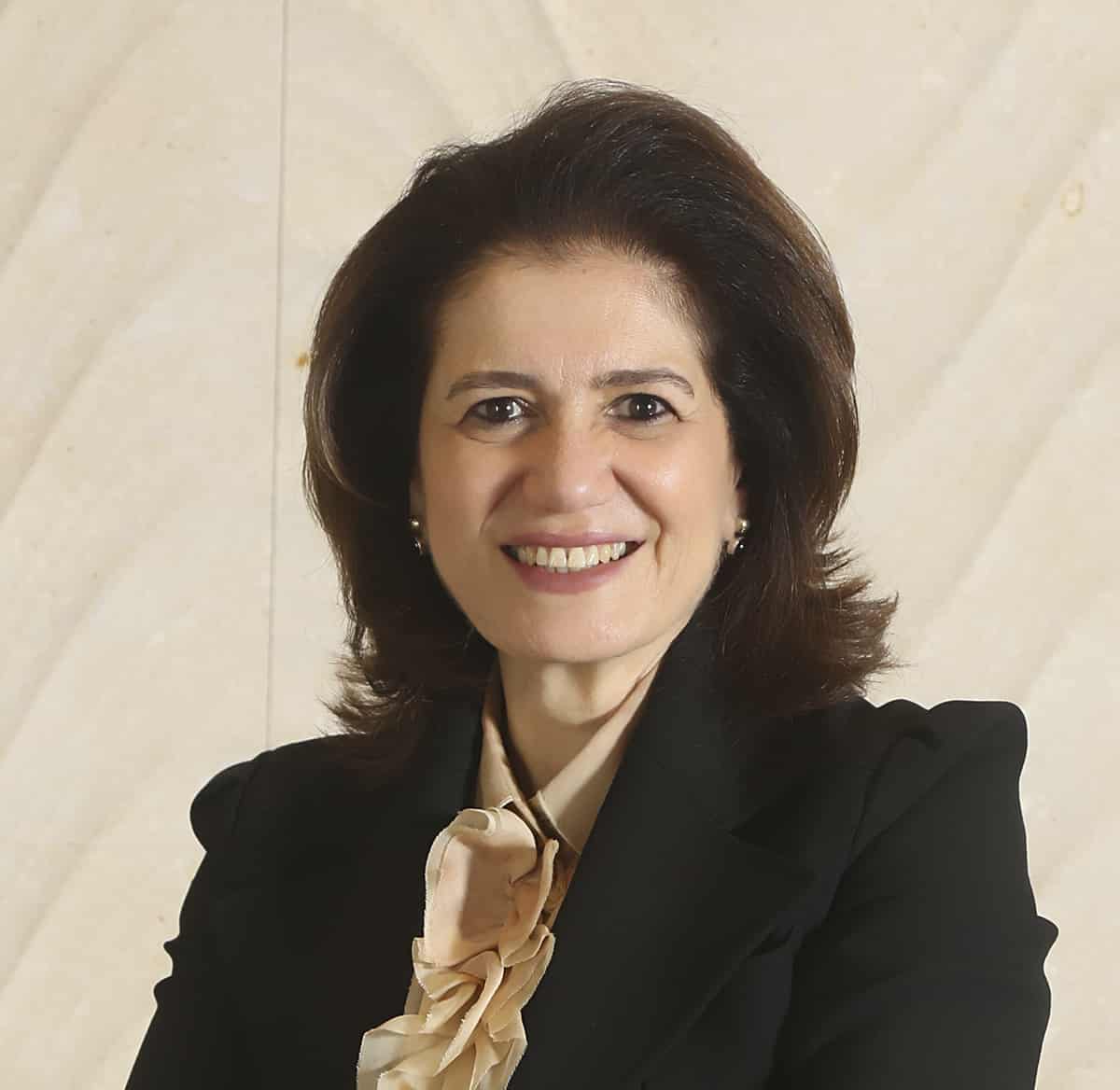Randa Sadik, CEO of Arab Bank, speaks to Global Finance about the impact of climate financing and future plans for the bank.
Global Finance: How is 2024 looking for Arab Bank?
Randa Sadik: Our financial position is robust, with strong capital position, high liquidity levels and a diversified earnings engine across the markets in which we operate. Our digital transformation investments have allowed us to deliver a differentiated offering and position us well for further growth. We are cautiously positive on the prospects for our key markets.
GF: You have one of the Middle East’s largest banking networks: How do you navigate the region’s uncertainties?
Sadik: Arab Bank’s global network makes it uniquely positioned to support finance and trade within MENA [Middle East and North Africa], in addition to helping international companies tap into MENA markets and local companies to grow internationally. This diversification has served the group well over time, ensuring financial strength and a diversity of revenue sources. Our success in navigating the uncertainties in certain parts of the region is attributed to our deep understanding of the region’s risks and our ability to manage these risks prudently.
GF: Where do you see the best growth opportunities for 2024?
Sadik: The key regional growth opportunities in 2024 are expected to be across GCC [Gulf Cooperation Council] countries, as these economies benefit from economic diversification programs and government investments. In addition, Arab Bank is reentering the Iraqi market, which offers a strong growth opportunity given the size of that market and its investment needs, making it a significant addition to the Arab Bank Group’s network.
Another growth area is Wealth Management and Private Banking. Arab Bank is growing this segment both organically, by expanding its investment solutions offering, and through Arab Bank Switzerland’s recent acquisition of a majority stake in the family holding company, which owns deep-rooted Swiss bank Gonet. The new banking group will be a major actor in the Swiss wealth management industry, with assets under management in excess of CHF10 billion [$11.3 billion].
Islamic banking is another growth area, as the segment is experiencing higher growth rates than conventional banking. In addition to two fully Islamic subsidiaries, IIAB in Jordan and Alizz Islamic Bank in Oman, Arab Bank Group is considering expanding its Islamic banking offering in other markets, as well.
GF: How are new technologies changing the way you work as a regional bank?
Sadik: The first major shift goes back to 2018-2019, when we started to observe an exponential adoption of digital banking services, led by retail banking segment but closely followed by our corporate clients. This trend accelerated during the Covid-19 pandemic, coupled with the integration of API [application programming interface] partners to strengthen our digital offering. Today I can say that the majority of our customer franchise is digital first: Customers expect from us seamless and personalized services at the touch of their fingers, yet with a robust sense of security and trust embedded in their experience. Coupled with digital advancement, the access to instant data streaming has helped us adopt AI advancements.
The implication of both meant that Arab Bank designs, delivers and manages regional digital customer experiences that are market fit. Examples are our seamless near-instant payment service Arabi Access—our regional cash management platform for corporate clients—or our Global Customer ID to facilitate access to Arab Bank service across our network. We have also created a digital development company, Acabes, to support technical R&D and innovation needs for Arab Bank.
GF: How do you see the future of banking in the Middle East?
Sadik: The region has been quick to embrace digital transformation in banking. With a young and tech-savvy population, there is a growing demand for seamless digital banking experiences, driving financial institutions to continue investing heavily in digital infrastructure to meet the evolving needs of customers. Partnerships, collaborations and acquisitions of fintech firms allow traditional banks to leverage their expertise to enhance customer experience and streamline operations.
In an era of heightened competition, banks in the Middle East are expected to place a greater emphasis on customer experience. Embedded finance, open banking and generative AI are expected to be among the main driving forces in shaping the future of banking services. Also, governments across the region are proactively updating regulations to foster innovation while safeguarding financial stability and consumer protection. With the Middle East being the global hub for Islamic banking, the region will continue to witness growth in Shariah-compliant financial solutions, offering significant opportunities for sustainable and inclusive growth. Last but not least, ESG considerations will continue to gain more prominence in the region.




